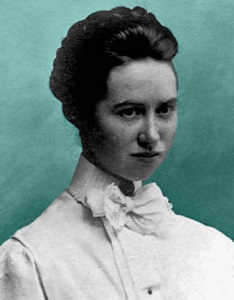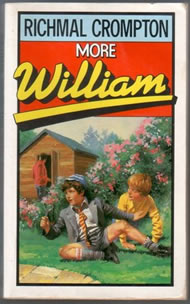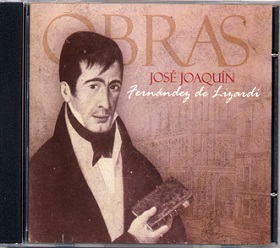De Amerikaanse dichteres Marianne Moore werd geboren op 15 november 1887 in Kirkwood, Missouri. Zie ook alle tags voor Marianne Moore op dit blog en ook mijn blog van 15 november 2009 en ook mijn blog van 15 november 2010.
What Are Years
What is our innocence,
what is our guilt? All are
naked, none is safe. And whence
is courage: the unanswered question,
the resolute doubt, —
dumbly calling, deafly listening—that
in misfortune, even death,
encourage others
and in its defeat, stirs
the soul to be strong? He
sees deep and is glad, who
accedes to mortality
and in his imprisonment rises
upon himself as
the sea in a chasm, struggling to be
free and unable to be,
in its surrendering
finds its continuing.
So he who strongly feels,
behaves. The very bird,
grown taller as he sings, steels
his form straight up. Though he is captive,
his mighty singing
says, satisfaction is a lowly
thing, how pure a thing is joy.
This is mortality,
this is eternity.
Appellate Jurisdiction
Fragments of sin are a part of me.
New brooms shall sweep clean the heart of me.
Shall they? Shall they?
When this light life shall have passed away,
God shall redeem me, a castaway.
Shall He? Shall He?

Marianne Moore (15 november 1887 – 5 februari 1972)
De Engelse schrijfster Richmal Crompton Lamburn werd geboren op 15 november 1890 in Lancashire. Zie ook alle tags voor Richmal Crompton op dit blog en ook mijn blog van 15 november 2008.
Uit: More William
« Innumerable slimy iridescent trails shone over hats, and coats, and umbrellas, and wall-paper.
“Huh!” grunted William, who was apt to overwork his phrases. “They’ve got out right enough.”
He looked at the tracks again and brightened. Jimmy was frankly delighted.
“Oo! Look!” he cried, “Oo funny!”
William’s thoughts flew back to his bedroom wall—“A Busy Day is a Happy Day.”
“Let’s clean it up!” he said. “Let’s have it all nice an’ clean for when they come down. We’ll be busy. You tell me if you feel happy when we’ve done. It might be true wot it says, but I don’t like the flowers messin’ all over it.”
Investigation in the kitchen provided them with a large pail of water and a scrubbing-brush each.
For a long time they worked in silence. They used plenty of water. When they had finished the trails were all gone. Each soaked garment on the hat-stand was sending a steady drip on to the already flooded floor. The wall-paper was sodden. With a feeling of blankness they realised that there was nothing else to clean.
It was Jimmy who conceived the exquisite idea of dipping his brush in the bucket and sprinkling William with water. A scrubbing-brush is in many ways almost as good as a hose. Each had a pail of ammunition. Each had a good-sized brush. During the next few minutes they experienced purest joy. Then William heard threatening movements above, and decided hastily that the battle must cease.”

Richmal Crompton (15 november 1890 – 11 januiri 1969)
Cover
De Duitse schrijfster Emmy von Rhoden (eig. Emilie Auguste Karoline Henriette Friedrich geb. Kühne) werd geboren op 15 november 1829 in Magdeburg. Zie ook alle tags voor Emmy von Rhoden op dit blog en ook mijn blog van 15 november 2009.
Uit: Der Trotzkopf
»Oh, wie schrecklich ist es jetzt!« stieß sie schluchzend heraus. »Warum hat auch der Papa wieder eine Frau genommen! Es war alles viel schöner, als wir beide allein waren. Alle Tage muß ich lange Reden hören über Sitte und Anstand, und ich will doch keine Dame sein, ich will es nicht, und wenn sie es zehnmal sagt!«
Als sie mit ihrem Vater noch allein war, führte sie freilich ein ungebundeneres und lustigeres Leben. Niemand hatte ihr Vorschriften zu machen oder durfte sie an ihren dummen Streichen hindern; was sie auch tat, es galt als unübertrefflich. Das Lernen wurde als langweilige Nebensache betrachtet, und die Erzieherinnen fügten sich entweder dem Willen ihrer Schülerin oder sie gingen davon. Beklagte sich dann mal diese oder jene bei dem Vater und hatte der Vater wirklich den festen Entschluß gefaßt, ein Machtwort gegen sein unbändiges Kind zu sprechen, so kam er doch nicht dazu, seinen Vorsatz auszuführen. Sobald er mit ernster Miene Ilse gegenübertrat, fiel sie ihm um den Hals, nannte ihn ihren ›einzigen, kleinen Papa‹, obgleich Herr Macket ein sehr großer und kräftiger Mann war, und küßte ihn stürmisch. Versuchte er, ihr ernste Vorstellungen zu machen, hielt sie ihm den Mund zu.
›Ich weiß ja alles, was du mir sagen willst, und ich will mich ganz gewiß bessern!‹ Mit solchen und ähnlichen Worten und Versprechungen tröstete sie den Papa. Ach, wie gern ließ er sich so trösten! Er konnte dem Kinde nie ernstlich zürnen, es war jasein Alles.
Als Ilses Mutter starb, hatte sie ihm das kleine, hilflose Ding in den Arm gelegt.“

Emmy von Rhode (15 november 1829 – 7 april 1885)
Cover hoorspel
De Franse schrijfster Madeleine de Scudéry werd geboren op 15 november 1607 in Le Havre. Zie ook alle tags voorMadeleine de Scudéry op dit blog en ook mijn blog van 15 november 2009.
Uit: La Carte de Tendre (Clélie, histoire romaine)
« Après il faut, pour arriver à Tendre, passer par Tendresse, car l’amitié attire l’amitié. Ensuite il faut aller à Obéissance, n’y ayant presque rien qui engage plus le cœur de ceux à qui on obéit que de le faire aveuglément; et, pour arriver enfin où l’on veut aller, il faut passer à Constante Amitié, qui est sans doute le chemin le plus sûr pour arriver à Tendre-sur-Reconnaissance. Mais, madame, comme il n’y a point de chemins où l’on ne se puisse égarer, Clélie a fait, comme vous le pouvez voir, que ceux qui sont à Nouvelle-Amitié prenaient un peu plus à droite ou un peu plus à gauche, ils s’égareraient aussitôt; car, si au partir du Grand-Esprit, on allait à Négligence que vous voyez tout contre cette carte, qu’ensuite continuant cet égarement on aille à Inégalité; de là à Tiédeur, à Légèreté et à Oubli, au lieu de se trouver à Tendre-sur-Estime on se trouverait au lac d’Indifférence que vous voyez marqué sur cette carte et qui, par ses eaux tranquilles, représente sans doute fort juste la chose dont il porte le nom en cet endroit. De l’autre côté, si, au partir de Nouvelle-Amitié, on prenait un peu trop à gauche et qu’on allât à Indiscrétion, à Perfidie, à Orgueil, à Médisance ou à Méchanceté, au lieu de se trouver à Tendre-sur-Reconnaissance, on se trouverait à la mer d’Inimitié où tous les vaisseaux font naufrage et qui, par l’agitation de ses vagues, convient sans doute fort juste avec cette impétueuse passion que Clélie veut représenter. Ainsi elle fait voir par ces routes différentes qu’il faut avoir mille bonnes qualités pour l’obliger à avoir une amitié tendre et que ce qui en ont de mauvaises ne peuvent avoir part qu’à sa haine ou à son indifférence. »

Madeleine de Scudéry (15 november 1607 – 2 juni 1701)
De Mexicaanse dichter en schrijver José Joaquín Fernández de Lizardi werd geboren in Mexico-stad op 15 november 1776. Zie ook alle tags voor José de Lizardi op dit blog en ook mijn blog van 15 november 2008.
Uit: Life and Deeds of the Mangy Little Parrot Written by Him and for His Children (Vertaald door William Little)
“The poor old people had less knowledge about the world than what I’d acquired, for I have very deep experience with the fact that most godfathers don’t know the duties they take on with respect to their godchildren, and hence they think they’re generous by giving them two bits when they see them. And if their parents die, they remember them as if they had never seen them. It’s quite true that there are some godparents who fulfill their duties completely, and they even take the lead over the godchildren’s own parents by protecting and raising them. Glory be forever for such godparents!
Actually, mine, who were rich, were involved with me as much as if they had never seen me: motive enough for me never to thing about them again.
They baptized me at last, and they named me Pedro and, as is customary, they added my father’s family name, Sarmiento.
My mother was beautiful, and my father loved her madly. With this and following the persuasiveness of my cautious aunts, it was agreed nemine discrepante, to find a wet-nurse for me; that is, as we say here, a mammy.
Ah, children! If you marry someday and you have offspring, do not entrust them to the mercenary care of that class of people.”

José de Lizardi (15 november 1776 – 27 april 1827)
Cover
Zie voor nog meer schrijvers van de 15e november ook mijn vorige blogg van vandaag.
